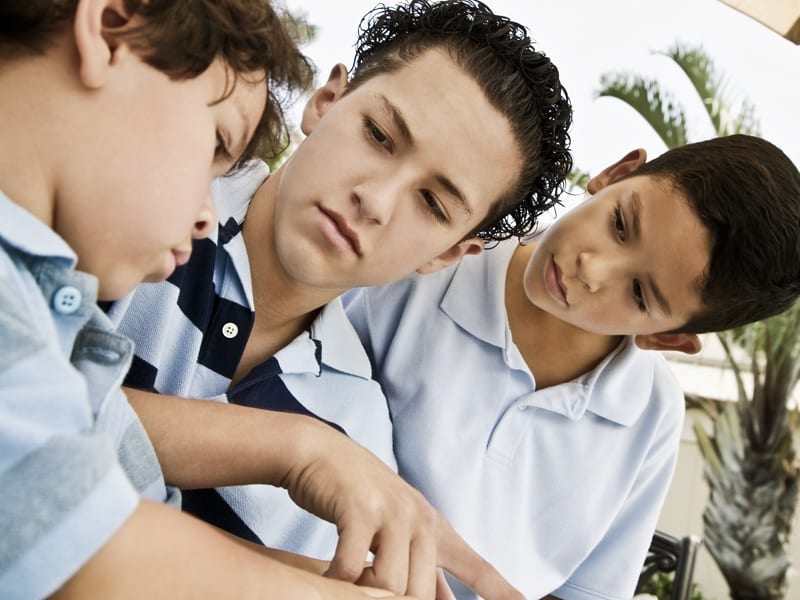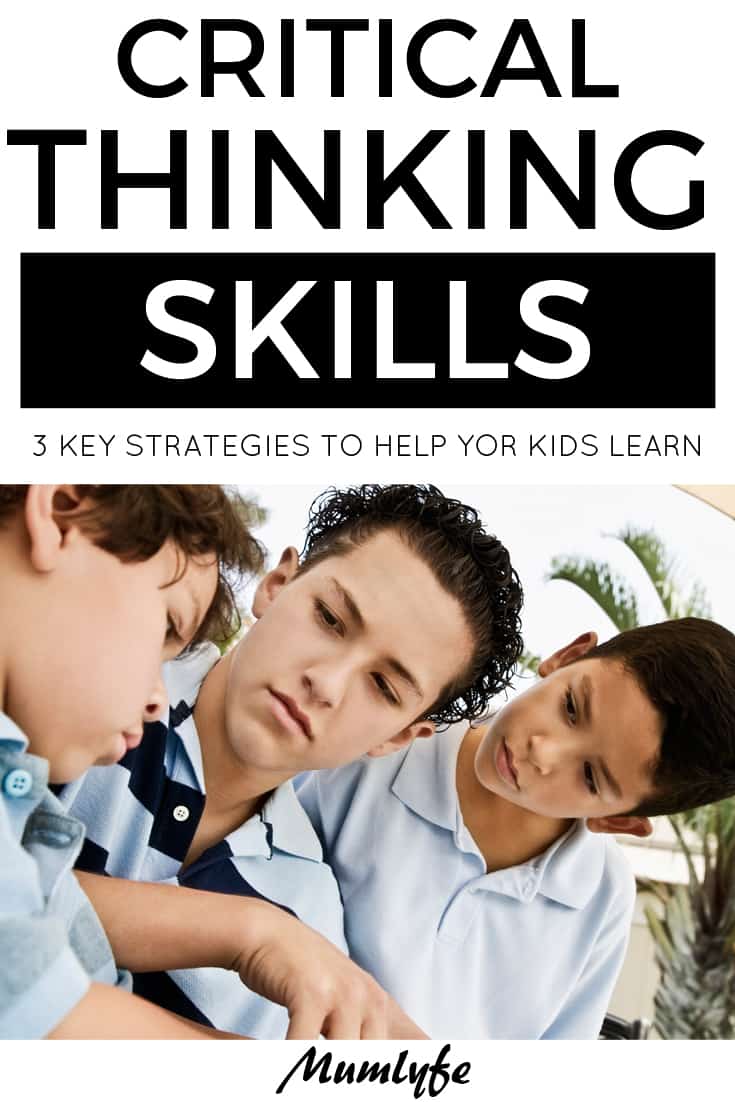Critical thinking skills for kids are considered crucial for problem solving and effective decision making. In fact, critical thinking may be the most important skill our kids can develop. It’s not enough to know things. We need to be able to independently make sense of what we know, question the objectivity of the information we have been supplied, formulate opinions, then apply our findings to problem solving and debate. That’s not something a standardised, multiple-choice test is going to examine.
Unfortunately, critical thinking skills are not something we just ‘pick up along the way’. Rather, it’s a learned skill that needs to be robustly taught and encouraged. While the days of rote learning are over in Australian schools, classroom critical thinking activities should definitely be supported at home. Even if your kid isn’t keen to become a champion of the world, critical thinking skills are becoming increasingly vital in everyday life, especially online.
3 everyday critical thinking skills strategies
1. ‘Crap detection’
A good place to start is with what thought-leader Harold Reingold calls ‘crap detection’. He’s not the most engaging speaker, but this video is a great introduction to this concept:
‘Crap detection’ is a fundamental tool for kids who do their research online. The internet is cluttered with questionable resources, and a kid needs to do some critical thinking to find reputable stuff. Questions (based on the CRAP test) to get kids thinking might include:
• Is this information current?
• Has this information been updated or refuted since it was discovered?
• Is it balanced information?
• Is it reliable, well-sourced, reputable?
• Is it biased or opinion?
• Does the publisher have outside interests in publishing this content?
• Is the content sponsored by a company or organisation?
2. Problem-solving
A lot of parents (my hand is high in the air) have a tendency to swoop in and save their kids when problems arise. While bringing problems to us is to be encouraged at any age, it’s high time we pushed our kids to figure things out for themselves.
To help our kids develop their questioning and logic, we instead need to ask a few questions of our own.
• What do you think the main part of the problem is?
• What would the ideal solution be?
• What do you think we should do to achieve that ideal?
• What resources might we need?
More on this: We need to stop being so available to our kids
To help them find the answers to these questions, use the ‘5-whys’ technique. Each time your child has a response, ask ‘why?’.
“What’s the problem?”
They’re being mean to me.
“Why?”
They’re mean to a lot of kids.
“Why?”
I guess it makes them feel good about themselves.
“Why?”
Because they get attention.
“Why?”
Because we don’t ignore them like we should. Possible solution!
And so on.

3. Healthy debate
Allow your kids to be curious questioners – even if they are questioning their parents! If your child disagrees with a rule or reason, encourage them to tell you why. Not just any why, of course. Instead, ask them to write a persuasive speech outlining their key points. They might even make a powerpoint presentation to really impress you. Explain that you are looking for:
Brainstorm
Everything you know about the problem so far.
Objective research
“Don’t just come up with your own argument, explain why mine is wrong” look at both sides of the story, even if you think you believe only one side
Key examples
“When has this happened before, what were the outcomes” back up your opinion
Logical reasoning
“This should happen because of that”; ” I feel this way because”
Careful analysis
Looking for patterns, following things through, and then what happened.
Helping kids understand the difference between ‘fact’ and ‘opinion’ is certainly a difficult thing in the era of #fakenews and unqualified experts. By developing their critical thinking skills, they will improve their understanding of the world, and apply all the knowledge they are busy learning at school.
Does your school focus on critical thinking?



Shreiya Aggarwal
Monday 12th of April 2021
Critical thinking is indeed a fundamental skill for both language and literacy success. The basic skills of reading, writing and math are no longer enough – children also need to learn to think critically if they’re going to be successful in today’s complex world. I'm a STEM blogger and an early educator. I believe as young learners may not have the inherent circuitry in place to think critically, a guiding caretaker or an encouraging parent can certainly make a difference in wiring them to think logically. That’s where we as parents and caretakers need to work. We need to coach our kids to think critically so they can survive the challenges of future. Here are some of the suggestions from my side :) https://kidpillar.com/games-kids-think-critically-critical-thinking/ - I'm sure you will love it.
Why cramming the night before an exam rarely works | Mumlyfe
Thursday 12th of September 2019
[…] Read this too: 3 strategies to help kids develop critical thinking skills […]
Neuroscience is unlocking the mysteries of the teen brain | Mumlyfe
Tuesday 7th of May 2019
[…] Related: 3 strategies to help kids develop critical thinking skills […]